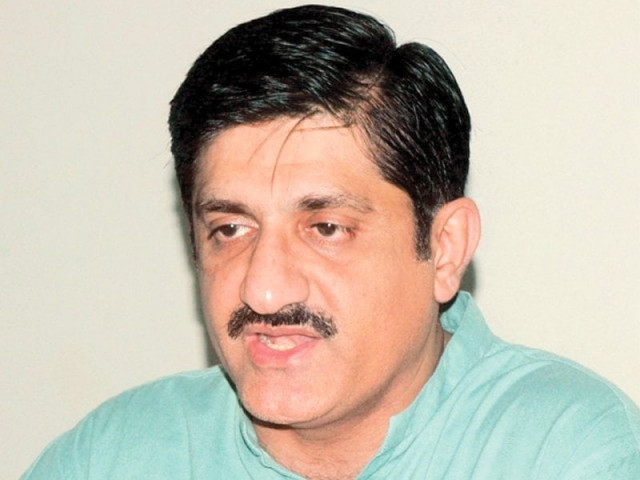Sindh CM vows to introduce investment, business reforms
Province going to open business facilitation centres, launch registration portal

Shah highlighted that Karachi had a heavy weightage in the World Bank’s Ease of Doing Business index and the Sindh government was committed to improving Pakistan’s overall ranking, which currently was 147th.
PHOTO:FILE
He shared these views on Saturday while speaking as chief guest at the Pakistan South East Asia Business Forum.
Shah boasted that the Sindh government had implemented 15 procedural reforms and eliminated the need for taking NOCs from the Sindh Environmental Protection Agency and the Sindh Building Control Authority for certain categories.
“We have reduced waiting period for water and electricity connections,” he said. “We have also digitalised more than 90% of land record and over 50% of land record archives.”
Key reforms for Pakistan’s real estate sector hit a snag
Shah shared with the audience that the Sindh government was making efforts to immediately review the provincial tax collection system spread across different agencies for new businesses, digitalise it and rationalise collection procedures.
“We are set to open business facilitation centres in Karachi and later in other big cities of the province,” he said. “We are launching a business registration portal for all departments, business facilitation centres and later on mobile apps.” Elaborating, the chief minister said the portal would allow new businesses to register with the industrial, labour and excise and taxation departments, Securities and Exchange Commission of Pakistan (SECP) and Federal Board of Revenue through a single application.
Reform necessary for success of wasteful, large state enterprises
Shah highlighted that Karachi had a heavy weightage in the World Bank’s Ease of Doing Business index and the Sindh government was committed to improving Pakistan’s overall ranking, which currently was 147th.
He added that he was devoted to developing new and large-scale businesses in Hyderabad, Sukkur and other resource-rich cities of Sindh.
“One of the important factors for the success of ease of doing business reforms is communications and awareness,” he stated. “We are working closely with the private sector which is advising us about making improvements and helping in the projection of our efforts.”
He revealed that a very capable private sector advisory committee had been constituted for guidance.
“I am committed to re-industrialising Sindh and ensuring prosperity through business,” he remarked. “In order to attract investment and provide business opportunities in Sindh, the provincial government has contributed to resolving Pakistan’s energy crisis by building power plants based on renewable and indigenous fuel (like Thar, Jhimpir and other projects).” He pointed out that the road network throughout Sindh under the China-Pakistan Economic Corridor (CPEC) and onwards to Punjab and Balochistan had created opportunities for new industries and trade by providing access to domestic markets.
Shah emphasised that agriculture was a priority of the Sindh government and “we support it financially and strategically”.
“Warehousing, logistics, food processing, aquaculture along the 300km coastline of Sindh are some of the areas we are working on,” he said and added that work on research to produce better crops and trading of the produce on the mercantile exchange was in progress.
Talking about textile, the CM said textile industry had been a major export earner and the government was focused on encouraging value-added textile and garment manufacturing.
The Sindh government, according to the chief minister, was also facilitating large investments in refineries, steel, cement and petrochemical production as demand for these goods continued to rise.
He highlighted that his government had planned the development of a 300-acre Marble City in order to mobilise the marble and stone-refining and processing industry on a large commercial scale to increase export revenues.
Published in The Express Tribune, September 9th, 2018.
Like Business on Facebook, follow @TribuneBiz on Twitter to stay informed and join in the conversation.



















COMMENTS
Comments are moderated and generally will be posted if they are on-topic and not abusive.
For more information, please see our Comments FAQ